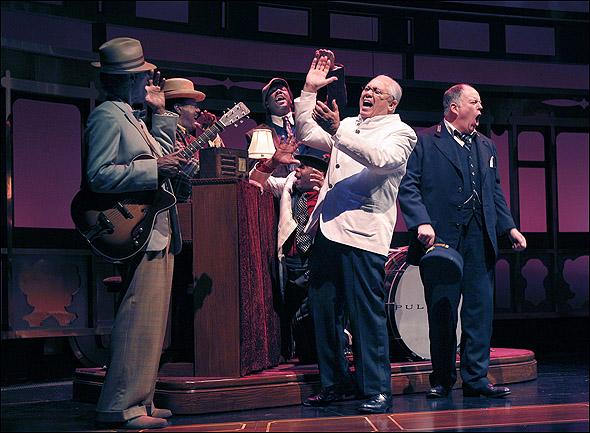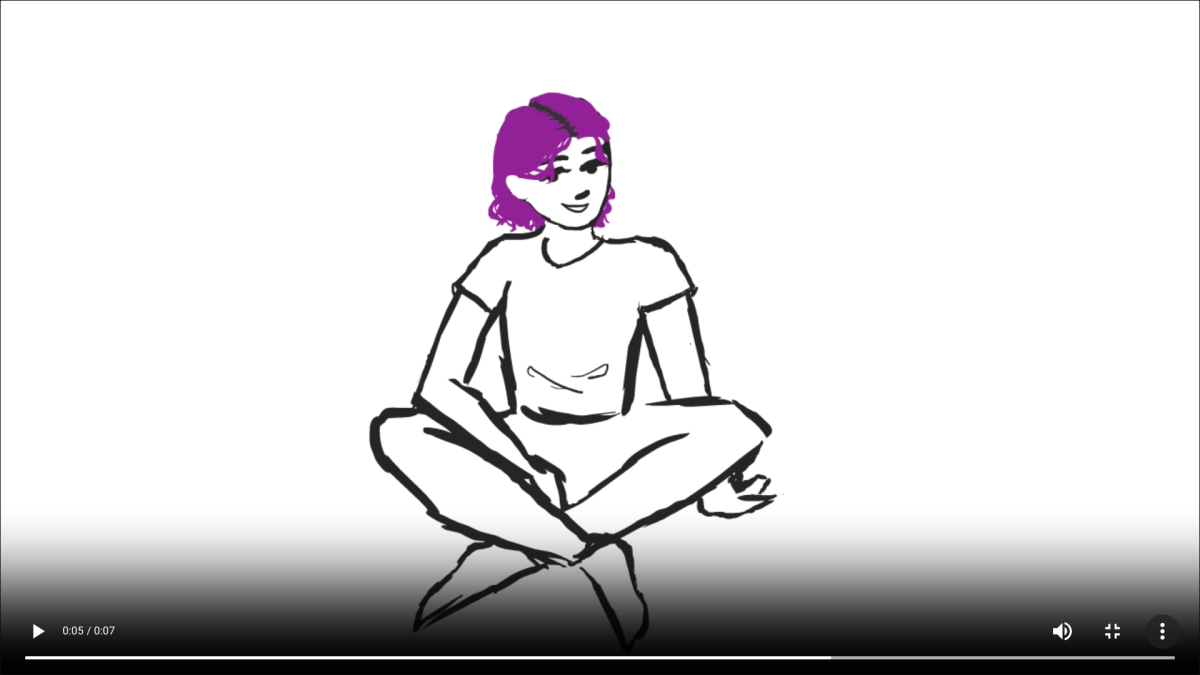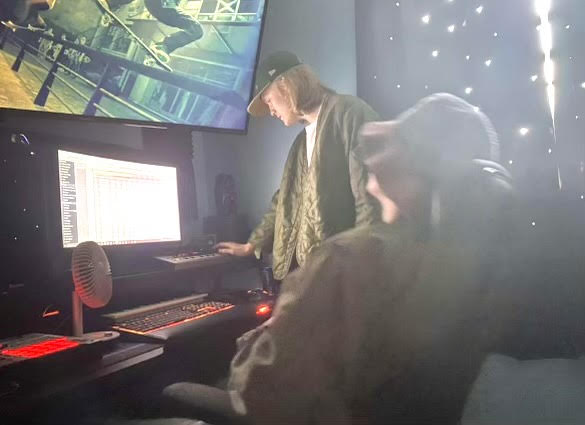
The experiences and treatment of the black porters of 1937 will never be forgotten in thanks to Arena Stage’s ingenious production of Pullman Porter Blues. A play marking an era of segregation and rising tension throughout the nation, it was originally produced in Seattle earlier this fall and was transported to the Mead Center of Washington, D.C. in late November.
The story follows young Cephas (Warner Miller), a soon-to-be doctor who longs for adventure and opportunities that will connect him to his roots. After securing a job as a porter on the Pullman train through his grandfather, Monroe (Larry Marshall), without his overbearing father’s knowledge, Cephas embarks on new discoveries as the train makes it’s way to Ohio. When his father discovers his presence as a porter when he thought he would be away at summer school, conflict continuously arises in an effort to understand the human spirit and the importance of family ties.
Miller was delightful as Cephas and portrayed his naïve, inquisitive demeanor perfectly. He was convincing as a young man on a road to discovery and his strong characterization never faltered throughout the show. Marshall also gave an equally wonderful portrayal of a kind-hearted grandfather who only wanted the best for his family. His body language depicted his character perfectly and had the audience in hysterics when dancing in one scene with the train’s band.
E. Faye Butler was an absolute standout as Sister Juba, a headstrong jazz singer who had a strong demeanor, but an equally kind heart. Her characterization of Juba was incredibly convincing and exhibited a softer side to a woman who seemed to have no guilt for any convictions she might have experienced in her youth. When Butler sang throughout the show, her voice had the perfect raspy tone to carry off the soulful blues that her voice allowed.
All of the men who sang in the show were on pitch and in unity with one another. Their tone was clear and made them a wonderful trio to listen to throughout the night. Though some mild choreography was a little out of sync between them, they carried off their small musical numbers perfectly.
Undoubtedly, a main driving force in the production was set designer Riccardo Henandez’s attention to each piece of available space onstage. As the Mead Center is not a huge area, the amount of creativity in the entire set was incredibly evident. Projections on the wall to document where the train’s next stop would be kept the storyline moving with fluidity, as did the construction of the frames of the train that were accented with actual smoke. Having trap doors where different pieces of set would rise from the floor was incredibly inventive and kept the audience breathless with every new scene.
Overall, the show was incredibly inventive and a wonderful production to witness. Every aspect of it was not only convincing, but incredibly moving as well as characters struggled with conflicts that were beautifully carried out. It’s a show that perfectly showcased a message that A. Philip Randolph has carried on for decades: “Freedom is never given; it is won.”









